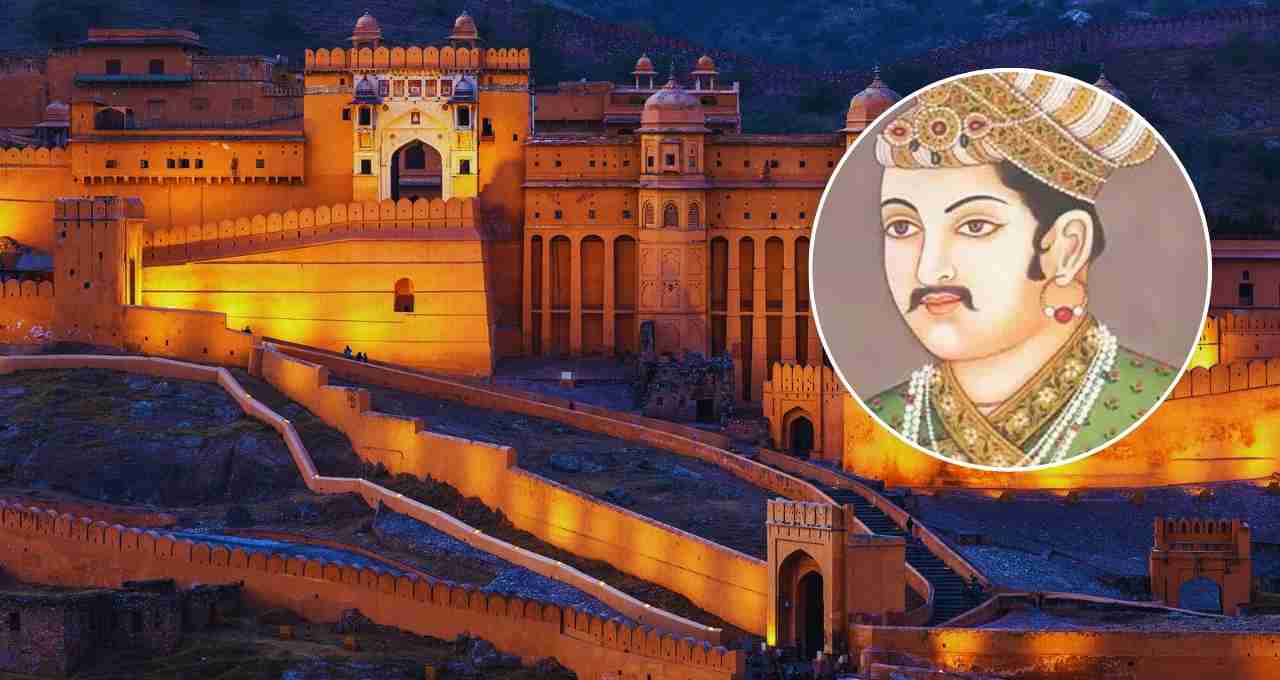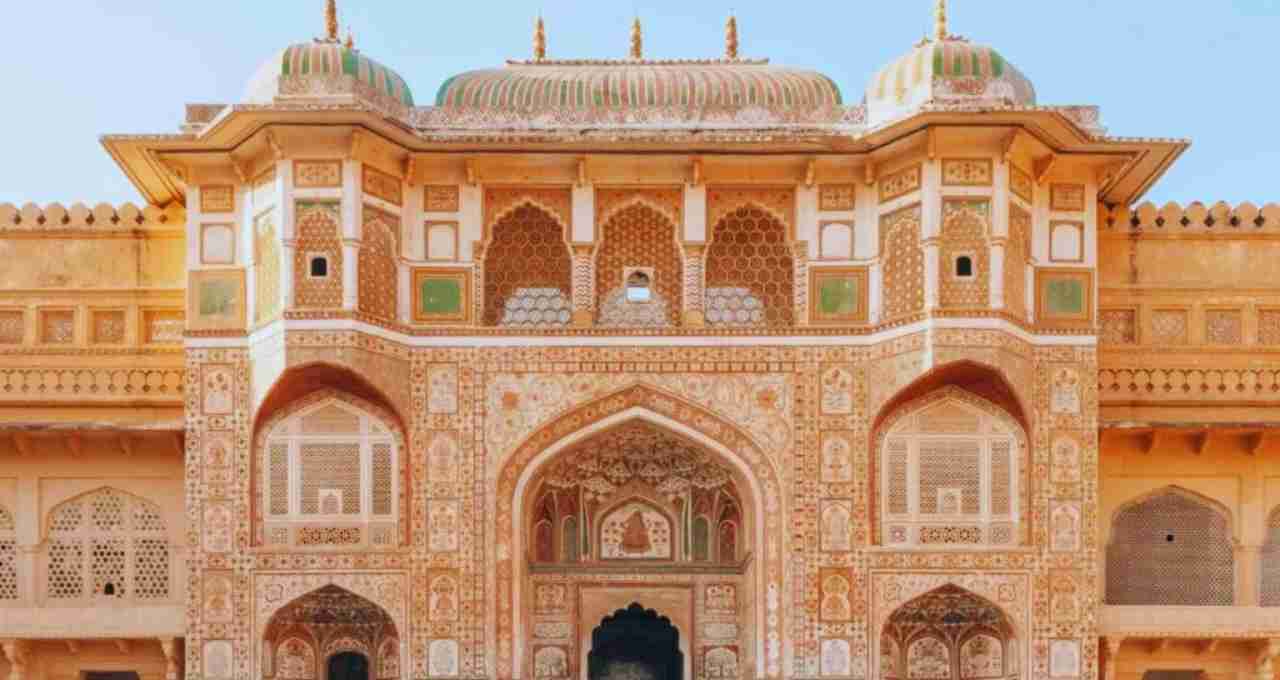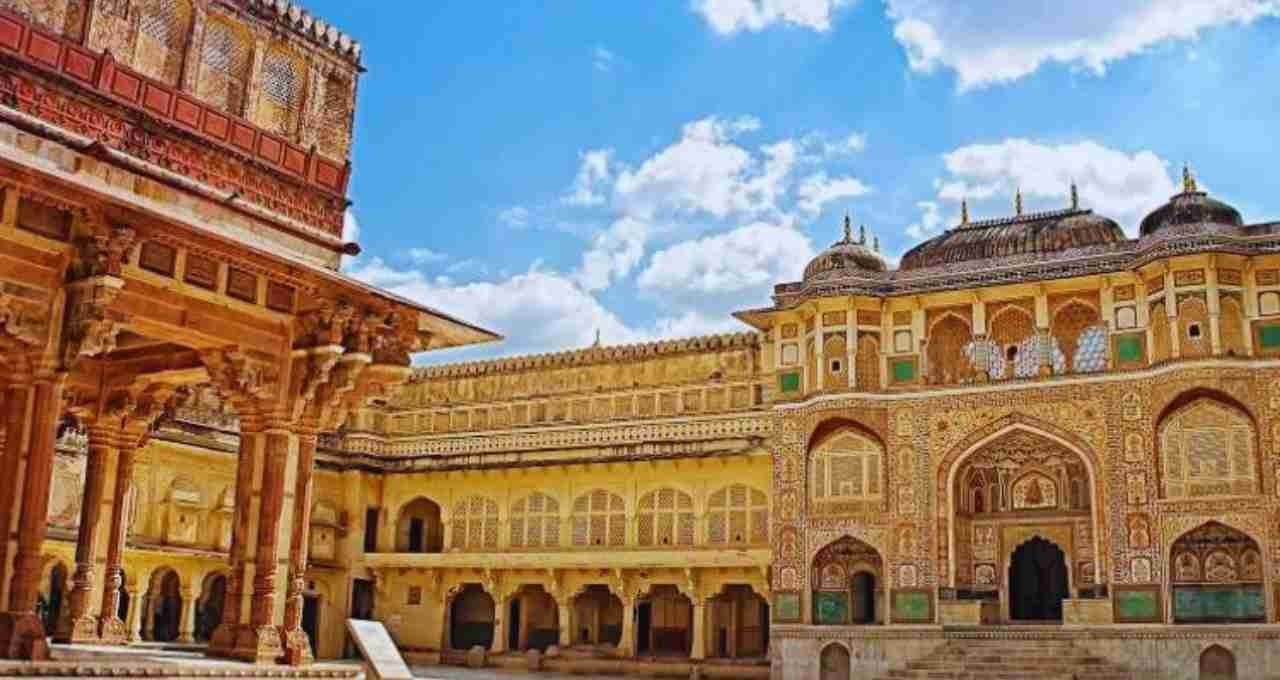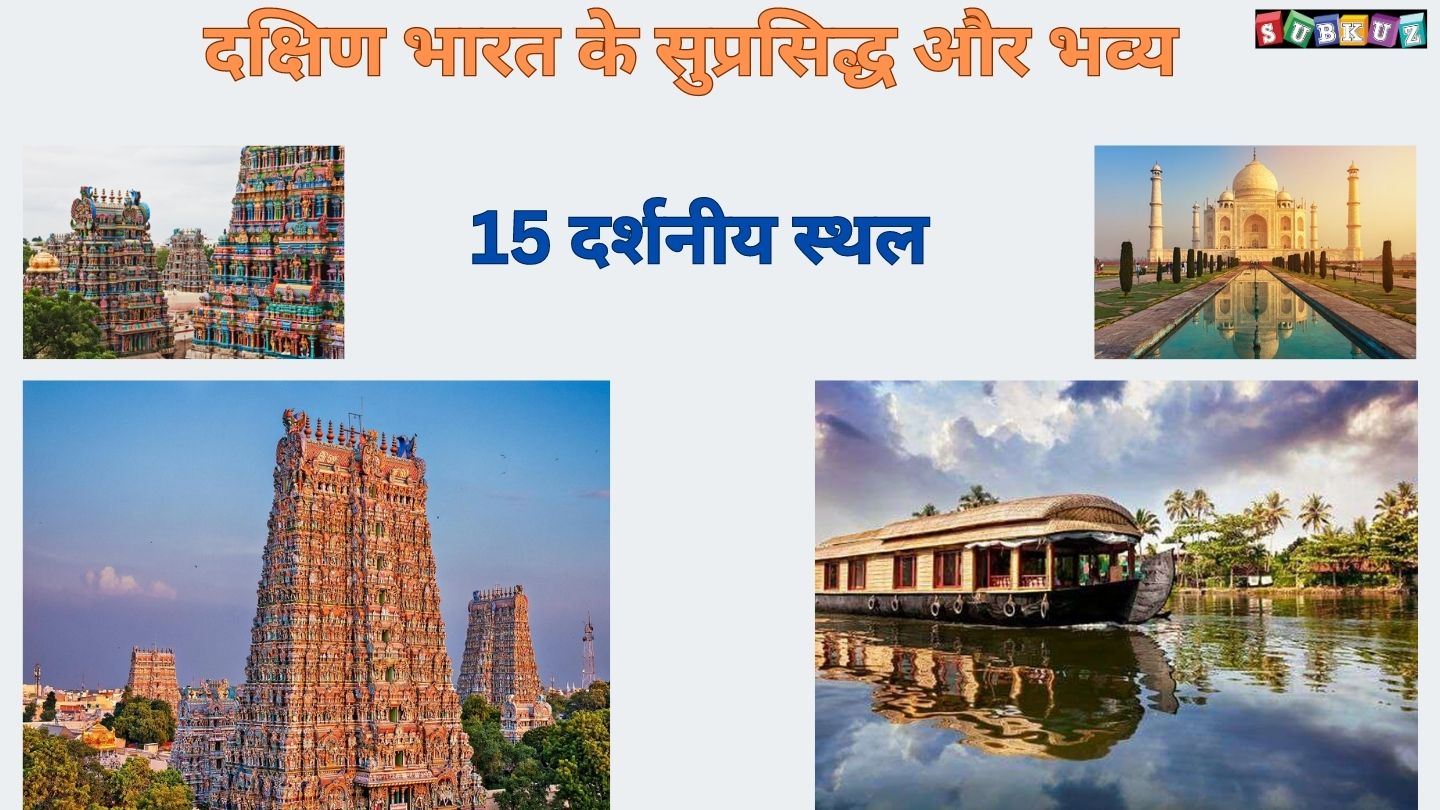Amer Fort, now a UNESCO World Heritage site, is renowned not only for its magnificent architecture but also for the fascinating events etched in its history. Recently, when French President Emmanuel Macron visited the fort, a historical event connected to it garnered renewed attention. This event revolves around Raja Bharmal, the first Hindu ruler of Amer, who arranged his daughter's marriage to Akbar to forge an alliance with the Mughals.
Amer Fort, now a UNESCO World Heritage site, is renowned not only for its magnificent architecture but also for the fascinating events etched in its history. Recently, when French President Emmanuel Macron visited the fort, a historical event connected to it garnered renewed attention. This event revolves around Raja Bharmal, the first Hindu ruler of Amer, who arranged his daughter's marriage to Akbar to forge an alliance with the Mughals.
Raja Bharmal's Struggles and the Fight to Preserve his Kingdom
Before Raja Bharmal's reign, the Amer principality was embroiled in conflict. Bharmal ascended the throne of Amer in 1547, but his path was far from smooth. Instability persisted for a time under the rule of Amer's previous ruler, Ratan Singh, Bharmal's nephew. Bharmal employed a cunning strategy, persuading Ratan Singh's brother, Askaran, that Ratan Singh was extravagant and should be deposed. Askaran subsequently murdered his brother and claimed the throne of Amer.

However, Bharmal ousted Askaran and became king himself. Yet, further crises threatened his reign. One such crisis arose when a man named Suja attempted to seize control of the Amer principality after Ratan Singh. In this situation, Raja Bharmal used his intelligence to safeguard his kingdom and took effective steps to deal with his opponents. This exemplified his struggles and astute decisions, crucial to preserving his realm.
Meeting Akbar and a Strategy for Survival
Raja Bharmal repeatedly made strategic decisions to protect his kingdom. In 1562, when Akbar's governor, Mirza Safruddin, planned an attack on the Amer principality, Bharmal faced a significant challenge. To secure his state, he realized that forging a relationship with the Mughals was vital to Amer's future. At this juncture, Bharmal contacted Akbar through Majnu Khan and decided to submit to Akbar's authority to safeguard his kingdom.
Following his meeting with Akbar, Bharmal took this step to protect his kingdom from the Mughals. He pledged his allegiance to Akbar to strengthen his position. Under this strategy, Raja Bharmal cultivated a b relationship with Akbar, successfully averting an attack on the Amer principality. This was a prime example of Raja Bharmal's foresight and diplomacy, proving crucial for the security and well-being of his kingdom.
The Historic Marriage at Amer Fort

On February 6, 1562, a historic event unfolded in Sambhar, Rajasthan, when Raja Bharmal married his daughter, Harkha Bai, to the Mughal Emperor Akbar. This event marked a significant turning point in Rajput-Mughal relations. Until then, no Rajput king had given his daughter's hand in marriage to the Mughals. Raja Bharmal took this step to protect his kingdom and cultivate a b relationship with the Mughals.
Following the marriage, Harkha Bai was honored with the name "Mariam uz Zamani," and she became one of Akbar's wives. This marriage not only symbolized harmony between two powerful dynasties but also demonstrated Bharmal's foresight and political acumen. Raja Bharmal proved that taking strategic steps, even in difficult circumstances, can benefit the security and future of a kingdom.
Ultimately, a New Chapter in History
Raja Bharmal's decision added a new chapter to Indian history, but it remains a subject of debate among historians. Some historians view it as a far-sighted and wise move, while others offer criticism. Prominent historians like Dr. Tripathi and Gopinath Sharma believed this action was taken by Raja Bharmal keeping in mind the safety and future of his kingdom. According to them, this decision proved crucial in improving relations between the Rajputs and the Mughals.

This marriage marked a turning point in Mughal-Rajput relations. It laid the foundation for future cooperation and understanding between the two parties. The marriage of Akbar and Harkha Bai (Mariam uz Zamani) became a historical example of how strategic decisions can yield strategic and political advantages. This series of events demonstrates that Raja Bharmal took well-considered steps to protect his kingdom.
The Impact of Akbar and Mariam uz Zamani
The marriage of Akbar and Mariam uz Zamani (Harkha Bai) was not merely a personal union; it was a significant political move between the two empires. This marriage strengthened Mughal-Rajput relations and ushered in a new era of trust between the two. This marriage occurred at a time when Mughal needed the support of Rajputs, and Raja Bharmal strategically used it for the security of his kingdom.
As a result of this marriage, Akbar and Mariam uz Zamani's son, Salim, further strengthened the Mughal empire. Salim later reigned as the Mughal Emperor Jahangir. Jahangir's rule followed Akbar's policies, highlighting the significance of the relationship between Akbar and Mariam uz Zamani to the Mughal empire.














